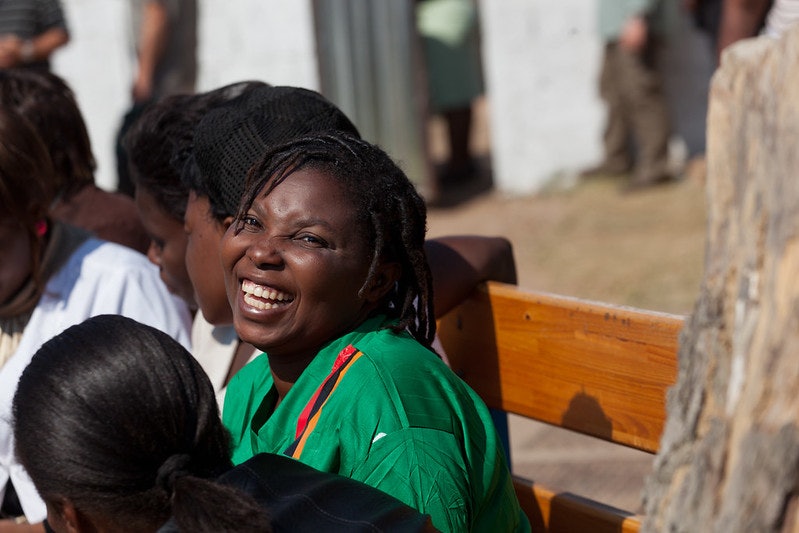Insights from Bush Institute global health expert Hannah Johnson
When the State Department issued a waiver in late January exempting PEPFAR from the foreign aid freeze, the U.S. signaled a renewed commitment to the global fight against HIV. This was a life-saving decision that enabled PEPFAR to continue its heroic work – treating HIV, strengthening American leadership abroad, and countering the growing Russian and Chinese influence in Africa.
However, in the past several weeks, many PEPFAR partners have reported challenges in resuming implementation in approved programming. In severe cases, patients who rely on PEPFAR for essential support have not been able to receive time-sensitive, life-saving medicine.
Twenty million people depend on life-saving HIV medication through PEPFAR. Their lives are at risk if PEPFAR programs are not restored, as is U.S. global leadership. Now is the time to fully ensure these programs can deliver treatment and save lives.
Figure of the month
6.3 Million
That’s the number of AIDS-related deaths that would occur if PEPFAR were to be permanently halted, as estimated by UNAIDS. The end of the program would also result in 3.4 million children who would become orphans due to AIDS, 350,000 new HIV infections among children, and an additional 8.7 million adult new infections by 2029.

Bush Institute Insights
Any pause to PEPFAR’s work immediately risks lives because HIV patients require strict treatment regimens. As I recently wrote, these regimens are necessary to reduce the levels of the virus in a patient’s blood, as well as to prevent the emergence and spread of drug-resistant HIV that is more difficult and expensive to treat. These treatments are especially critical for pregnant women living with HIV to ensure that babies are born HIV-free.
The Department of State needs to work alongside PEPFAR’s many partners to fully resume PEPFAR programming immediately to ensure people can receive uninterrupted care. Many countries are close to reaching or even have reached the international target of eliminating HIV/AIDS as a public health threat by 2030. A successful, several-year transition toward full country ownership is in reach – but a sudden termination of PEPFAR would place decades of gains in jeopardy.
Ally Updates
Since the U.S. freeze on foreign aid, the Joint United Nations Program for HIV/AIDS (UNAIDS) has monitored the impact of recent U.S. shifts on the global HIV/AIDS response – including country updates, U.S. government guidance and announcements, and resources for policymakers and implementers.
The organization has also received status reports on the impact of the freeze from 71% of all PEPFAR-funded countries. Dozens of disruptions in the implementation of U.S.-funded HIV programs and the provision of life-saving treatment to patients living with HIV have been reported.
In the news
- A group of doctors and academics authored a New York Times op-ed urging Secretary Marco Rubio to save PEPFAR. They highlighted the program’s success in preventing the transmission of HIV to newborns and argued that supporting PEPFAR should be “a special priority” for pro-life and faith-based groups.
- During a committee hearing focused on USAID last week, U.S. Congressman Michael McCaul (R-Texas) – former chairman of the House Foreign Affairs Committee – called PEPFAR “one of the most successful global health programs ever developed.”
- A recent article in The Wall Street Journal highlighted the astounding success of PEPFAR and wrote that the program represents “some of the clearest evidence of the impact of American aid.”
- KFF published a brief highlighting USAID’s outsized role in U.S. global health aid. In 2023, USAID obligated or implemented 73% of all U.S. global health bilateral assistance and 60% of PEPFAR’s assistance.
- Emma Petty Addams, the Co-Executive Director of Mormon Women for Ethical Government, calls on conservatives to support PEPFAR in Deseret News. PEPFAR is “one of the best investments our country has ever made,” she writes, arguing that the program is both fiscally responsible and morally admirable.






























